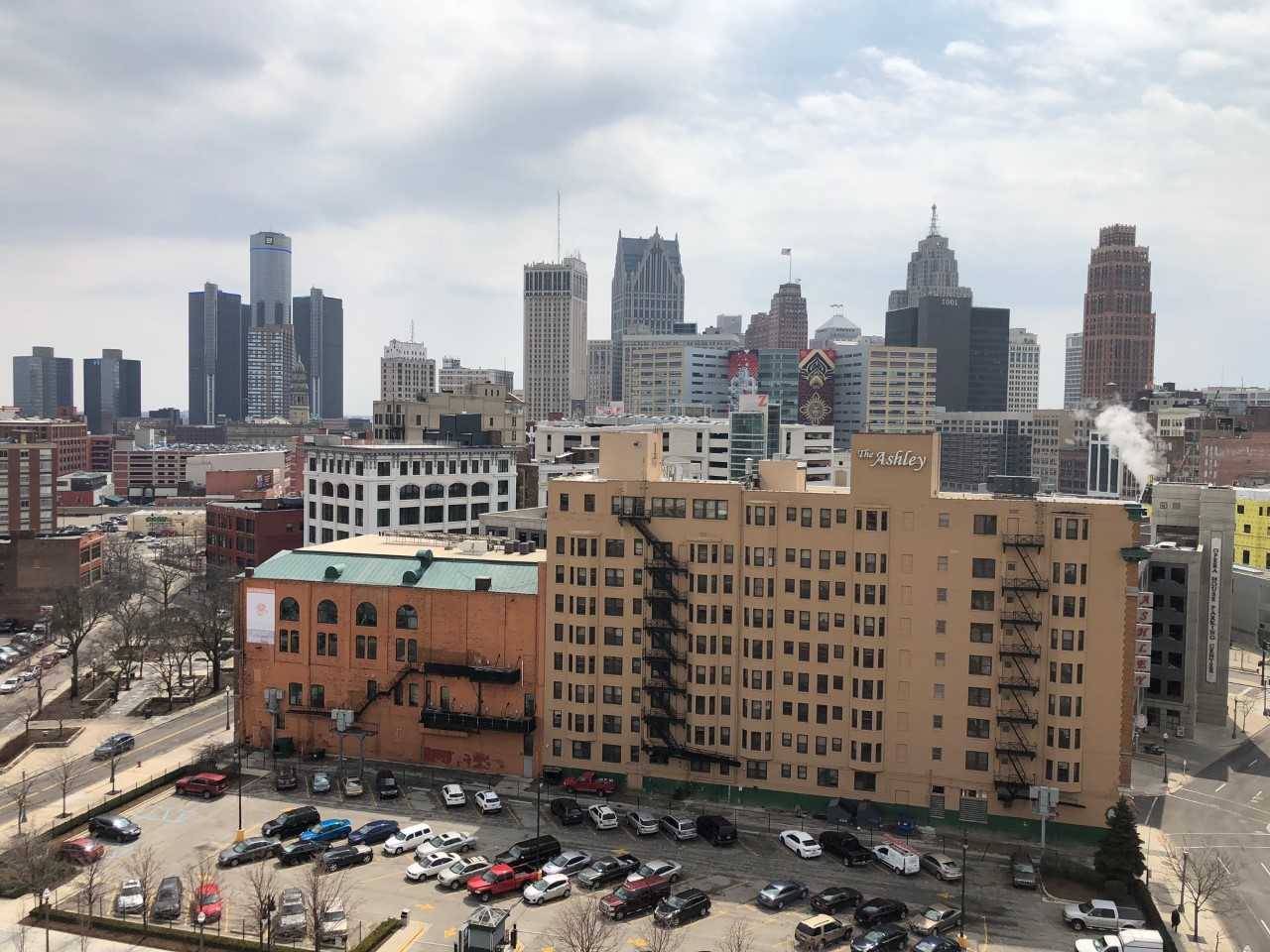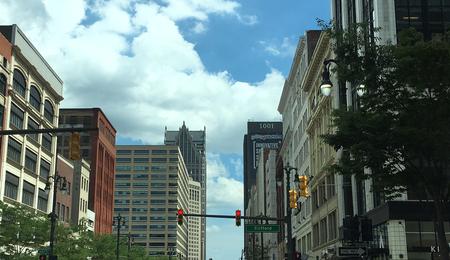City Divided: A Look At The Disparities in Detroit
“When you say Detroit is on a comeback, that’s just not true. That is a flat-out lie.”


“Two Detroits” is a phrase often said to describe the rapid rise of Detroit’s downtown and midtown against the failure of that change to reach some parts of the city at all.
Critics of Detroit explain this problem as a divide between young and old, black and white, and poor and wealthy.
Amidst this criticism, Mayor Mike Duggan promotes a message of one Detroit, for all.
Detroit Today host Stephen Henderson speaks with Chastity Pratt Dawsey from Bridge Magazine and Harvey Ovshinsky, who will be leading a panel discussion—Detroit: A Tale of Two Cities—Thursday at 6pm at the Detroit Historical Museum. The panel—which includes Dawsey—will address the many different sides of this debate.
On Detroit’s comeback:
“Downtown is coming back. Midtown is coming back. Unless you’re defining the whole city by the 7.2, Detroit as a whole is not coming back,” says Chastity Pratt Dawsey. “The people of Detroit are not going to see a comeback until we see some jobs.”
On poverty:
“The real issue is poverty. 40% of Detroit’s community is impoverished and is not benefiting in everyday life other than what they create their own, let alone what is happening in downtown,” says Ovshinsky. “The issue is the poverty, the joblessness, the reality of the experience of people who live here and nearby.”
On the gentrification:
“Gentrification is for the rich, look up the word gentry,” says Dawsey. “For people to even assume or to say in any sort of way that gentrification is going to help the city, that’s not what it’s meant to do. Gentrification is meant to help the people who are rich get richer.”
Henderson also speaks with Alan Mallach, author of The Divided City, which takes an in-depth look at the revival and growing inequality of Detroit.
On the meaning of gentrification:
“Gentrification is about something more than the fact that a couple of neighborhoods like Corktown, maybe a little bit of Woodbridge, are changing in terms of incomes and house price,” says Mallach.
“This is the real issue in a way. Large numbers of people in Detroit—and this is very much a racial issue—feel left out of the decisions that are being made, of the opportunities that are being created, of the changes happening.”
“When a lot of people talk about gentrification in Detroit, it’s got this undertone of having to do with powerlessness and being left out of the process.”
On the concentration of investment in pockets of the city:
“I don’t think it’s gonna automatically spill over,” says Mallach. “A huge part of this comes down to how do you deal with creating opportunity for people so you start lifting people out of poverty? And how do you create an education system that people of all income levels, backgrounds and so forth can feel comfortable sending their kids to? As well as create neighborhoods that are attractive and safe?”
Click on the audio player above to hear the full conversation.

